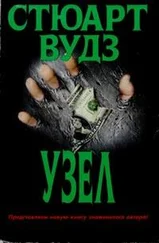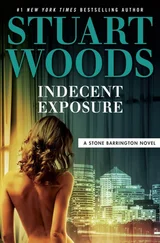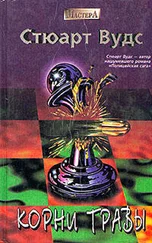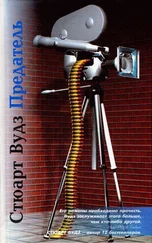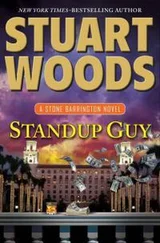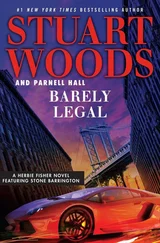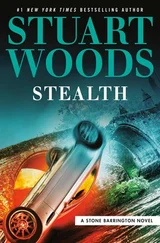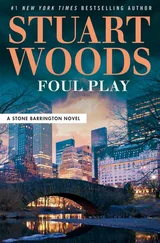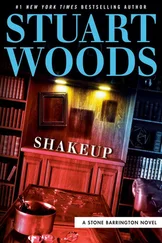Sykes took that as a rebuke and glowered a bit. “We’re working on it.”
“Best thing would be a Secret Service agent, maybe one who’s recently retired or fired; somebody with an axe to grind,” Bess said. “Just knowing their procedures better would be a big help.”
“Don’t you think I know that?” Sykes shot back.
“I don’t see much evidence that you do,” she said coolly. “After the cockup in Maine, we need people who can, at the very least, read a map.”
“We’re working on a retired agent,” Sykes said.
“What are his particulars?”
“Been with the Service for twenty-two years, the last three or four becoming progressively marginalized. His wife died — a woman he hated, by all accounts — but it still threw him. I’ve got a man drinking with him two or three nights a week at his local pub. He’s finding it hard to stretch his pension to cover his expenses.”
“He sounds ideal,” Bess said. “Do you want me to see him and observe?”
“Maybe,” the colonel replied. “Maybe soon. I could use another opinion.”
“Wire up your man, and I can nurse a drink at another table and hear their conversation. I’d like to question him, but I suppose it’s too soon for that.”
“Maybe not,” Sykes said. “We’ll see.”
They finished their brandy and departed the house for bed, except for Bess, who had a guest room upstairs, to keep the men away from her, or, perhaps, vice versa.
Sykes performed his bedtime ablutions, then got into the pajamas under his pillow and had his nighttime think.
Bess was on the cheeky side, but he put up with it because she was the smartest member of his group, and he did not necessarily exclude himself from that assessment. He had met her on a firing range in D.C., where she worked as a personal assistant to somebody important at Justice, and thus had had a proper vetting, which cut down on the work he otherwise would have had to pay for.
After they put away their weapons, Sykes had approached her in the small coffee bar. “Can I get you something?” he had asked.
“Thank you, a double espresso.”
“No sweetener?”
“No.”
He got one for each of them. “May I join you?”
“Sure.”
She was fairly good-looking: slim, with nice breasts — he liked that. She looked as though she would clean up nice, so she might be a good candidate to accompany him to one of those dinner parties he kept getting invited to since his wife had left him four years ago, a year before she died. He had not been broken up about that, since he had contrived for her benefits from the divorce to die with her, keeping him twice as rich as he otherwise would have been. Then, because she had not updated her will, he had inherited the house and property that had belonged to her father, where he now lived and ran his group.
“What do you do? Something in government, I would imagine.”
“You have a good imagination,” she had replied. “I’m assistant to the deputy director for criminal investigations.”
Oh, good, he had thought.
Colonel Sykes didn’t broach political views on that first occasion, and neither did Bess. By the time he had gotten around to that they had had three or four dinners. He had not made a move of any kind, but he had done his research. He knew what she earned at Justice, that she shared a small apartment with an older woman, and best of all, that she felt her job was a dead end, and she had another fifteen years before she could retire on her pension.
Then one evening she seemed a little depressed, and he gently asked her why.
“My boss won a case today, one that should have never been prosecuted.”
“What sort of case?”
“You’ve probably read about it in the Post ,” she said. “A kid was stopped for a broken taillight, the police found an illegal gun and white-supremacist pamphlets in his car.”
“I don’t read the Post ,” he replied. “I like my news unfiltered by the liberal press.”
“So do I, but I have to read it for work.”
“What did this kid get?”
“He hasn’t been sentenced yet, but my boss is recommending eight to twelve, out in six, if he keeps his nose clean and his mouth shut.”
“Who is he?”
“Willard Simmons.”
He slid his card across the table. “I may be able to help. Can you get me a copy of his file and his presentencing investigation and the name of the judge?”
She looked at him closely. “You? How could you help?”
“You didn’t answer my question.”
“Yes, I’ll get you the file. A thumb drive okay?”
“Fine.”
“You didn’t answer my question, either.”
“It’s better if you don’t know now. Maybe later.”
She reached into her purse and came up with a thumb drive. “I was taking this home for myself, but you can have it. The judge is Stanton Rutledge.”
Sykes slipped the drive into his pocket.
She seemed to look at him with new interest.
Sykes went home and plugged the thumb drive into his computer. The boy was Willard Simmons — he knew that from Bess. He was twenty-four, had two years of college at Georgetown, had been kicked out over an incident involving a racial slur, followed by a fistfight.
He knew something about the judge, too: from an old Virginia family, once considered for a slot on the federal bench, until the newspapers had published a college yearbook with a photograph of him in blackface at a frat party. He and Sykes belonged to the same club in D.C. and had met a couple of times. There was something else, too. He fished a copy of the club’s monthly newsletter out of a pigeonhole in his desk and scanned it. Yes, there it was.
It was not hard to find Judge Rutledge in the early evenings, since each day he devoted an hour to relaxation in the club’s bar, followed by dinner in the dining room. The judge was a widower and had no one to go home to.
Sykes got a drink from the bar and turned to find the judge at a nearby table. He strolled over. “Good evening, Judge,” he said.
“Hello there, Sykes. Join me?”
“Thank you, I will.” He sat down. “Can I get you the other half of that?” He nodded at the judge’s nearly empty glass.
“Don’t mind if you do. It’s bourbon. Doesn’t matter what kind.”
Sykes raised a finger to a waiter. “A Knob Creek on the rocks for the judge, please.”
The drink was there in a flash, and the judge took a sip. “Why, that’s remarkable. What is it again?”
Sykes told him, and the judge made a note.
There was a copy of the club newsletter on the table between them. Sykes picked it up and pretended to scan it. “I see there’s a Rutledge who has been proposed for membership. Any relation?”
“Yes, my nephew, Carter. He’s just moved up from Richmond to take a job at State. Doesn’t know all that many people in town.”
Sykes slid his card across the table. “E-mail me his CV, and I’ll be glad to put something together.”
“That’s very decent of you, Colonel.”
“Not at all. Someone I didn’t know was kind enough to write a letter for me, some years back. Now I can pass on the favor.”
They chatted on amiably for a few minutes. Sykes had hoped the judge might bring up the case, but he didn’t. So he made his own move. “Didn’t I see in the Post that you heard the case of this young man, Simmons?”
“Yes, a tragedy at his age.”
“It read like nothing more than a young man’s high jinks,” Sykes said. “Has he been sentenced?”
“Next Monday. The DA wants eight to twelve.”
“Whew! That’s mean! Does the prosecutor have some personal interest in the case?”
“I don’t believe so, but he came to Justice from the ACLU. I had the feeling he was personally offended by what the boy had done.” The judge looked around to be sure they were out of other members’ hearing range. “The attorney general is Jewish, you know.”
Читать дальше

